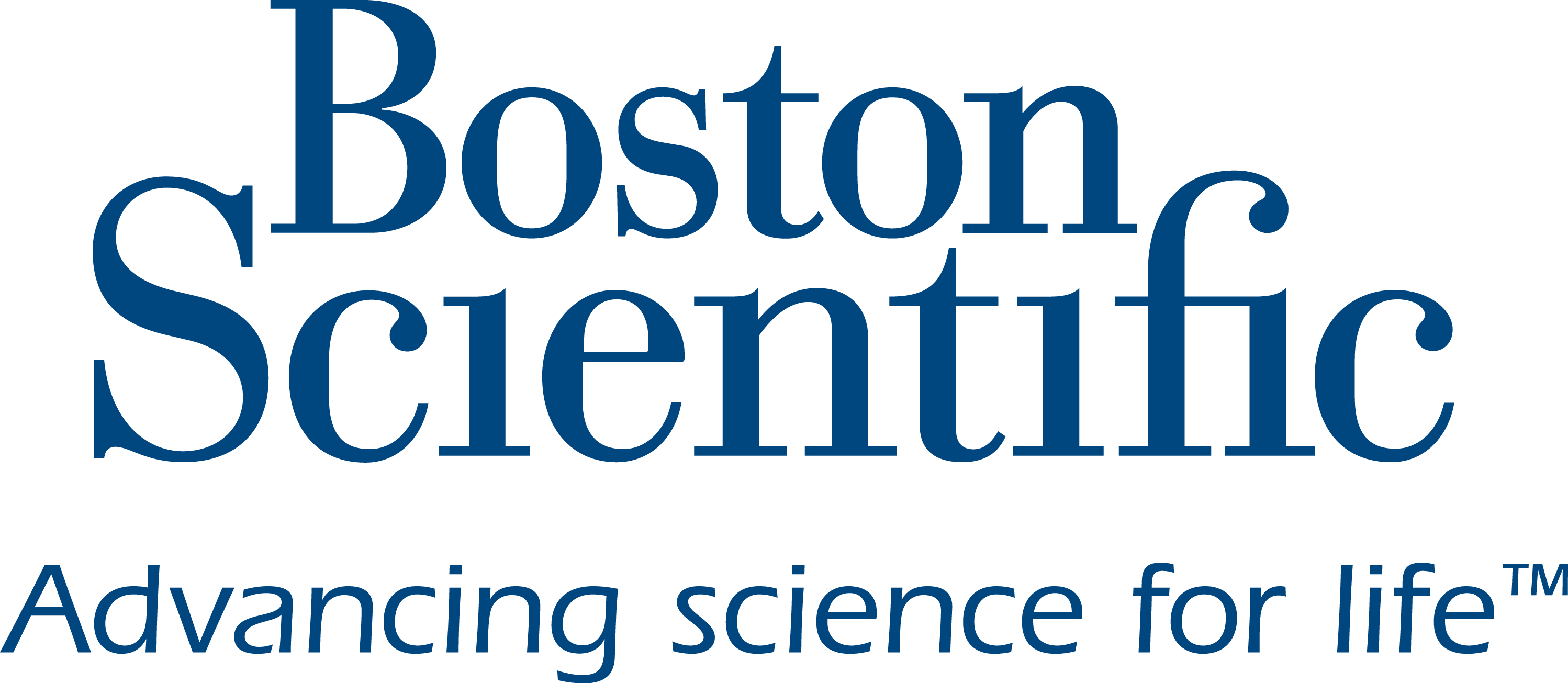Lilongwe (Malawi)
 Overall, the primary aim in Lilongwe is to support ongoing urological training and education.
Overall, the primary aim in Lilongwe is to support ongoing urological training and education.
Training in Lilongwe has been generously supported by Boston Scientific. Click the Boston Scientific logo (right) for further information.
Background
Malawi is a presidential republic in South-Eastern Africa with an area of 118,000 square kilometres. It has a population of 19 million, most of whom live in rural communities. Average life expectancy is 60 for men and 64 for women. 43% of the population are under 14 years of age; infant mortality is 35 per 1,000 live births. ** (see below for UK comparison)
.jpeg) Malawi has central hospitals, regional and private facilities. The public sector offers free health services and medicines, while non-government organisations and private doctors offer services and medicines for fees. Health insurance schemes have been established since 2000. At least 70% of the population access free healthcare funded and provided by the Government through ministry of Health. There are four tertiary referral hospitals, the biggest of which are in the capital, Lilongwe (Kamuzu Central Hospital, KCH) and in Blantyre, the commercial capital. Malawi has just 60 specialist surgeons, mostly general and orthopaedic. Of the two urologists working under the Ministry of Health, one is based at KCH, the other at Zomba central hospital. A considerable proportion of the urological surgery in Malawi is open, and mainly done by general surgeons. Malawi has one of the lowest per-capita/doctor ratios in the world at 0.000025 doctors per 1,000 people (2012). ** (see below for UK comparison)
Malawi has central hospitals, regional and private facilities. The public sector offers free health services and medicines, while non-government organisations and private doctors offer services and medicines for fees. Health insurance schemes have been established since 2000. At least 70% of the population access free healthcare funded and provided by the Government through ministry of Health. There are four tertiary referral hospitals, the biggest of which are in the capital, Lilongwe (Kamuzu Central Hospital, KCH) and in Blantyre, the commercial capital. Malawi has just 60 specialist surgeons, mostly general and orthopaedic. Of the two urologists working under the Ministry of Health, one is based at KCH, the other at Zomba central hospital. A considerable proportion of the urological surgery in Malawi is open, and mainly done by general surgeons. Malawi has one of the lowest per-capita/doctor ratios in the world at 0.000025 doctors per 1,000 people (2012). ** (see below for UK comparison)
UK population: 67 million (2019) - UK area: 242,500 sq Km - Life expectancy: M80 / F84 years (2020) - Age demographic: 18% < 14 years (2019) - Infant mortality: 4 per 1,000 (2018) - Doctors per 1,000 population: 2.8 (2018) - https://data.worldbank.org
The Urology Department
_crop958x787.jpeg) KCH is a 1,200 bed tertiary hospital catering for central and northern Malawi. Apart from urology, the department of surgery at KCH offers general, orthopedic, plastic, paediatric, neurosurgery and ENT services. The College of Surgeons of East Central and Southern Africa (COSECSA) has accredited the hospital to offer specialists fellowship training programs in urology, plus other specialties such as general, paediatric and orthopaedic surgery.
KCH is a 1,200 bed tertiary hospital catering for central and northern Malawi. Apart from urology, the department of surgery at KCH offers general, orthopedic, plastic, paediatric, neurosurgery and ENT services. The College of Surgeons of East Central and Southern Africa (COSECSA) has accredited the hospital to offer specialists fellowship training programs in urology, plus other specialties such as general, paediatric and orthopaedic surgery.
UroKCH serves as a national urology referral center. The top five urological conditions include benign prostate enlargement, urethral strictures, bladder cancer, paediatric urology and prostate cancer. The urology service has 20 beds and is led by Dr Charles Mabedi, who returned to Lilongwe in January 2020, after a 2-year fellowship in the UK.
Further details & contacts (N.B. available to BAUS members only)
History
Until November 2016, the only urology service in Malawi was offered by expatriate urologists. In December 2016, the first Malawian urologists graduated following training outside the country; in November 2017, COSECSA accredited KCH to train specialist urologists. KCH became associated with Urolink in October 2018 and, in January 2019, the first urology trainees were enrolled to train in Lilongwe; they are due to complete their training in December 2023.
Local objectives
The main objectives in Lilongwe are to strengthen lower tract endoscopic urological services, to support the establishment of upper tract endoscopic stone surgery and to provide remote support, and mentorship, in the management of complex cases by engaging various UK-based experts.
Ultimately, the main objective is to support ongoing urological training and education in Malawi.
Local needs
The top priorities for KCH are:
- To increase the intake of urology trainees by recruiting at least two trainees each year;
- To provide modern urology care: now that lower tract endoscopy is up-and-running, the next step is to advance into upper tract endoscopic stone service - the missing piece of the puzzle is equipment; ureteroscopes (rigid and flexible) & a laser and PCNL kit; and
- To conduct research.
Urolink visits
← Back to Current Link Centres